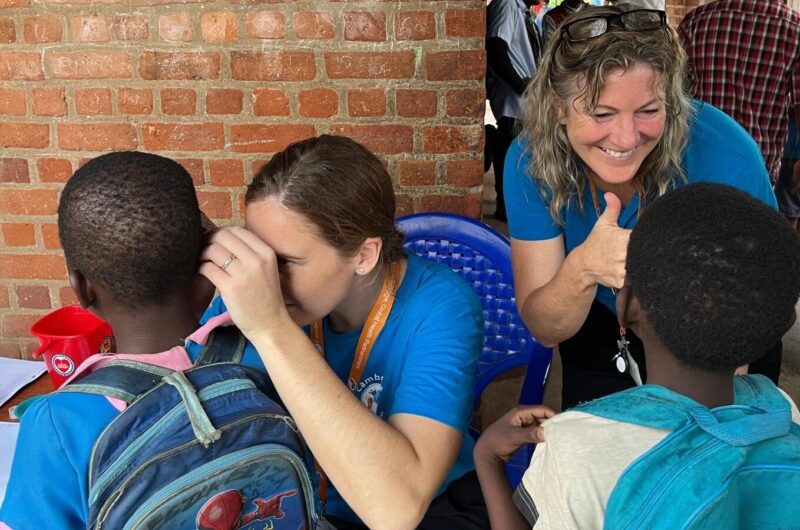A team of eight healthcare staff including ENT doctors, audiologists and a paediatric nurse from Cambridge University Hospitals NHS Foundation Trust (CUH), visited Malawi in November to co-deliver ear camps in rural communities with their Malawi colleagues.
They were part of the Malawi Hearing Project, a project supported by Cambridge Global Health Partnerships that delivers support, treatment and affordable hearing equipment to enable deaf children in Malawi to access education.
The team from Cambridge worked with their colleagues from the Audiology Department at Queen Elizabeth Central Hospital in Blantyre and with the support of Anzathu, a local community engagement NGO. The aim of the visit was to evaluate the most practical and sustainable way of delivering remote ear and hearing care while assessing and treating as many patients as possible.
With a mobile hearing unit in tow, the team drove long distances to visit three rural schools and a university. They worked incredibly hard in hot and noisy conditions to see more than 800 children and local community members in areas where people have little or no access to healthcare. The demand was huge: one teacher cycled 11 of her pupils with suspected hearing loss 36km to have them assessed. Many others waited patiently in 28-degree temperatures to be assessed.
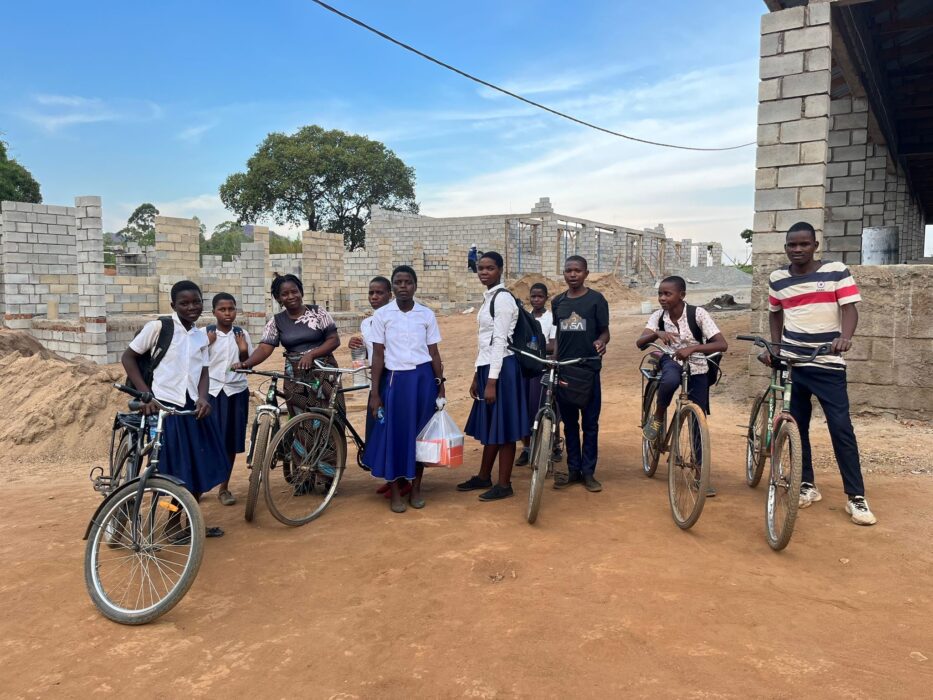
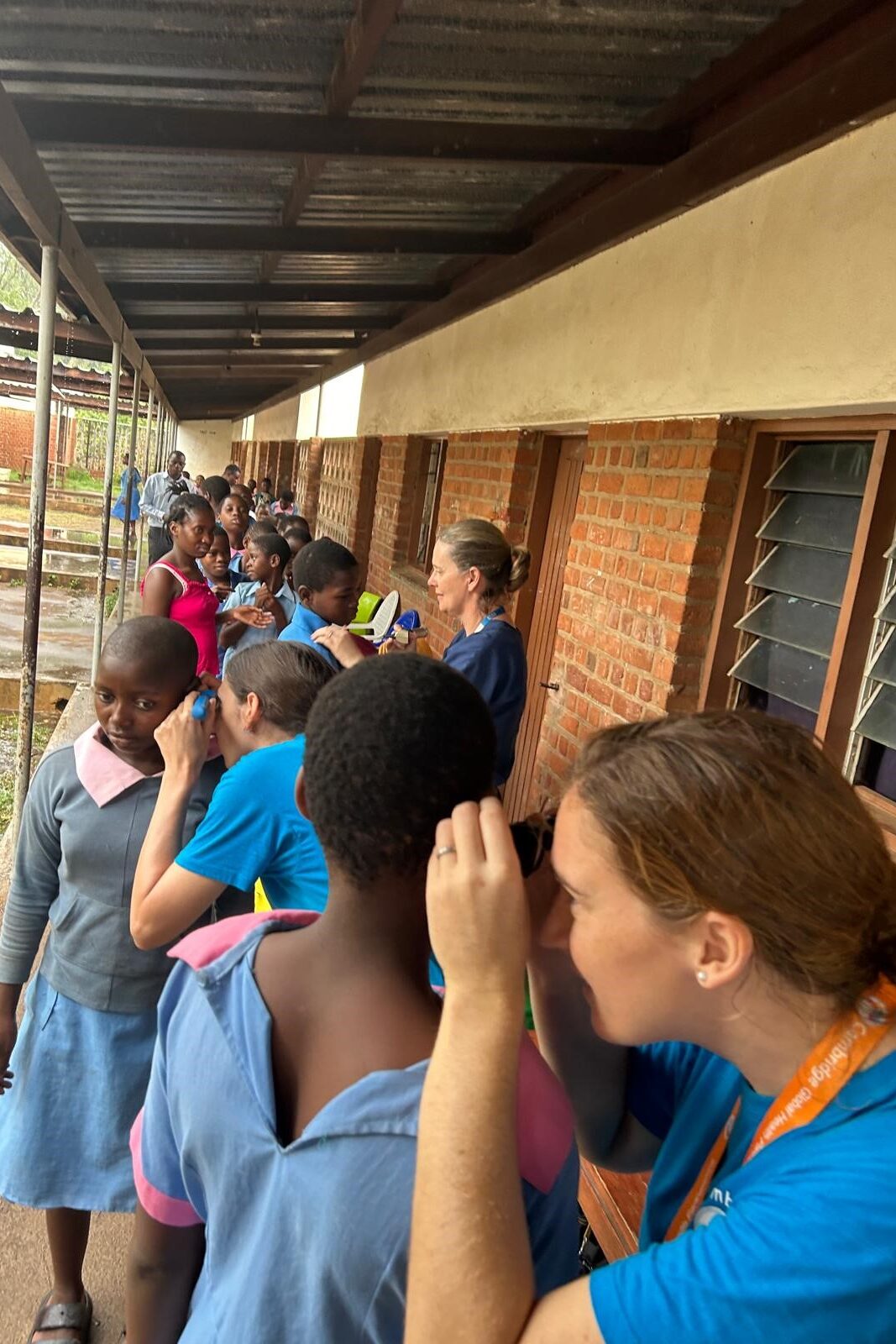
“It was rewarding working in a team of other healthcare professionals and everyone pulling together, particularly in some challenging environments and with limited resources. It was also hugely enjoyable to work alongside the Blantyre team and learn from their expertise of healthcare in a different setting, in addition to the friendliness, assistance and support from the Anzathu team,” explains Charlotte Skipper, Specialist Audiologist at CUH.
With Mwainisha Phiri in charge (lead audiologist from Queen Elizabeth Central Hospital), the team registered patients, took histories, checked ears, removed wax and performed tympanometry (checking the health of ear drum) and treated infections. Those still with hearing loss went on to have audiograms, before receiving assistive hearing technologies where possible.
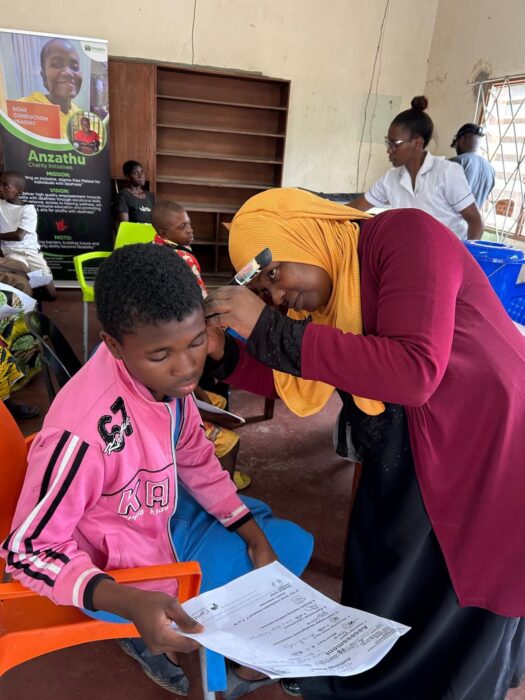
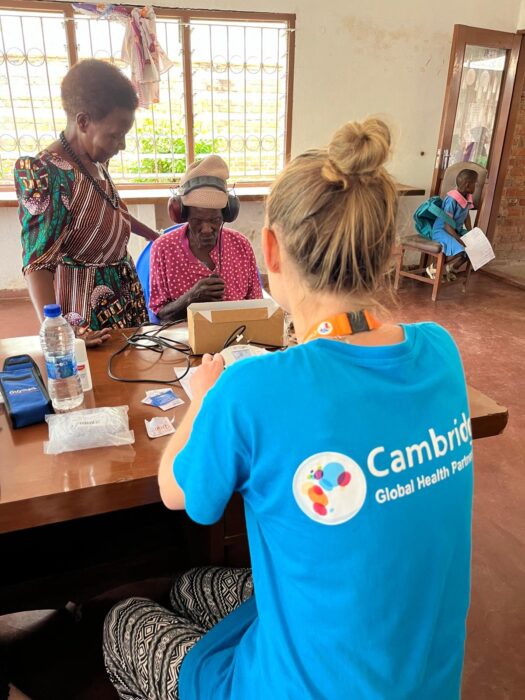
As well as providing assessment, treatment and referral to as many as possible, the visit was an opportunity to explore solutions to manage ear and hearing care issues in settings where it’s very difficult to access healthcare. With WHO and UNICEF continuing to emphasise the critical need for increased access to assistive products (AP), the team is also considering solar powered hearing aids and charging options to overcome the limited access to electricity and expense of batteries.
“Although we strived for excellence, resources aren’t currently available for patients to receive the same hearing healthcare as in the UK. I found it very difficult to think how different their pathway would be if they lived in Cambridge, especially the children,” explains Rebecca Silkstone, a Trainee Clinical Scientist (Audiology).
During the visit the team collected data which is now being analysed and used to inform the development of a multi-year project plan to improve ear and hearing care services in Malawi. It will also provide learning and development opportunities for NHS staff from Cambridge and the East of England in a very different working environment and health system.
Listen to CUH staff member and Global Health Fellow Natalia Glibbery and Rebecca Silkstone talk more about the project and what they learnt from working in a low resource environment in this interview with Cambridge 105 (interview starts at around 25 minutes).
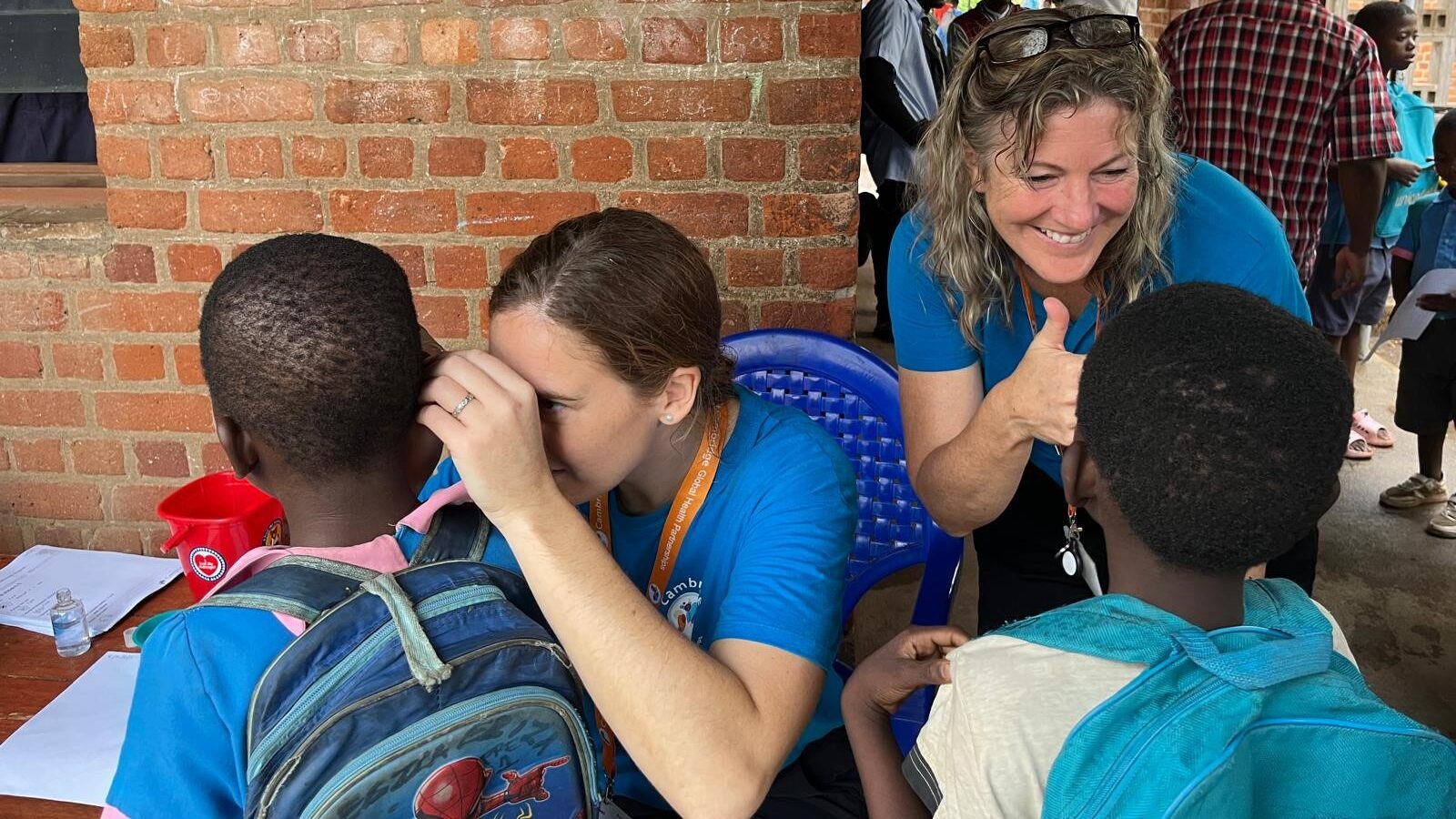
This visit was made possible thanks to the generosity of a small group of donors and those who support the ongoing work of CGHP. Thank you to everyone who made a donation and for all you have helped the team to achieve. You can find out more about the project here, or if you would like to make a donation to support the ongoing work of this partnership, please get in touch with Hannah Wilson, Fundraising Lead at hannah.wilson@cghp.org.uk.
Return to news

